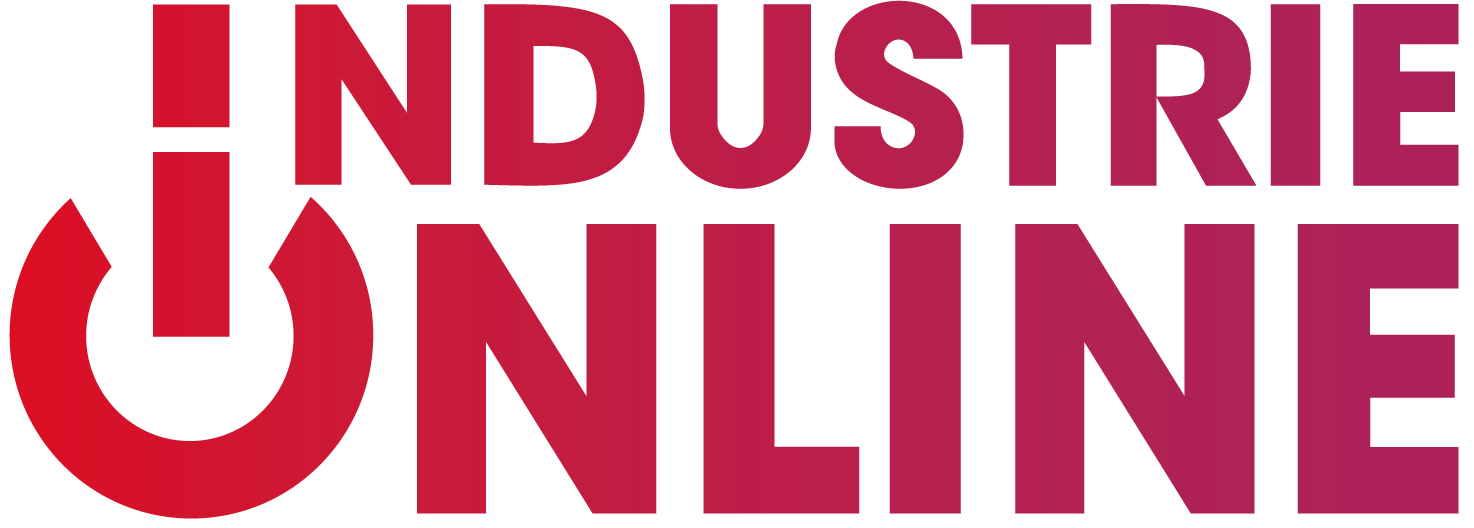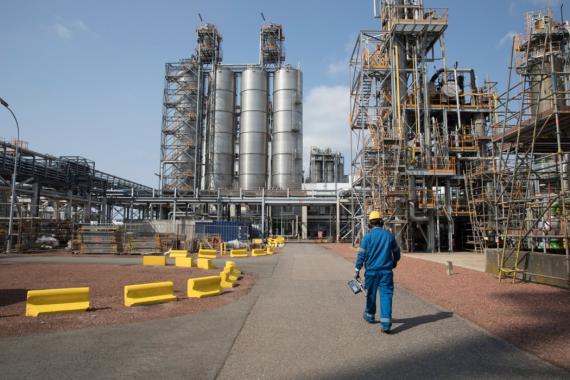Industrial relocation: the new industrial revolution
Industrial relocation: the new industrial revolution
With the rise of industry 4.0 and the dynamism that France wishes to instill in this sector of activity, the subject of industrial relocation was already leading the debates before the health crisis that affected our country in March 2020. This pandemic has acted as a catalyst by confronting France with a simple observation: our dependence on our excessive imports weakens us . Repatriating the manufacture of certain strategic products essential to our autonomy is essential. To achieve this, collaboration, changes in production methods, investments and technological progress must be part of tomorrow's industry. Focus on the new industrial revolution .
Why does industrial relocation seem essential for the French economy?
French industry exports as much or more than its European neighbours, but its weakness lies in its excessive consumption with other countries, which penalizes its trade balance .
A crisis that weakens an industry in full reflection
French industry has relocated for many years in order to increase its competitiveness and meet growing demand. Closure of factories, unemployment, loss of knowledge have led public authorities, industrialists and the public to wonder about the necessary return of certain production chains to French territory .
The health crisis of 2020 contributed to accelerating reflection on the subject since it reduced industrial activity by half for almost a year .
Investments fell by 50 billion while industry is particularly sensitive to it.
The second period of confinement confirmed the slowdown in the recovery and steered the discussions towards a pessimistic scenario. What will become of French industry if other countries lose interest in its products, because it has failed to properly manage this unprecedented crisis?
The conservative scenario that would see France recover from the COVID-19 health crisis in less than two years has not withstood successive confinements.
A desire to innovate and reinvent itself that can reverse the trend
Shortage of masks, medical equipment, food, etc., the health crisis puts France in the face of a sad observation. Our dependence on foreign countries to meet our basic needs in times of crisis makes us vulnerable and risks plunging the French economy, not to mention French morale.
In a context of unprecedented crisis, the agri-food, telecommunications, health and defense industries appear to be essential to a sustainable economy and to the protection of the population . How to achieve this in a country where nearly 80% of consumer products come from foreign countries, often far away?
What do the French think of a relocation of industry?
Dependence on low-cost products essential to everyday life
France knows that the weakness of its industry today lies in its value chains which show a strong dependence on foreign countries for low-value products, but which we particularly need .
A relocation strategy is needed in certain areas to overcome this problem and become more competitive than our European neighbours.
An undeniable confidence in the future
However, the pandemic has resulted in a lesser recession compared to other crises like those of 1975, 1993 or 2009, as companies look to the future and want to innovate . The France Relance plan set up by the government has thus received more than 6,500 applications to reflect on the future.
How can we change our models so that we no longer find ourselves in the same situation as in 2020 if other crises arise, because other crises will undoubtedly arise?
French companies want to innovate to strengthen the economic fabric and the dynamics of the territories . Investment prospects and ongoing projects are already exceeding expectations.
Made in France in force
Consumers demand quality products made in France. Beyond the health crisis, it is the overall evolution of our consumption patterns that is at stake . Climate change, loss of biodiversity, traceability of food are all subjects that concern households and for which they place great confidence in made in France.
To convince professionals and individuals to buy French and sometimes pay more, information work is required. In particular, it will promote France in the global industry, with, among other things, the definition of clear and unequivocal labels.
An essential evolution of the industrial models of the past
All the lights are green, but for a sustainable industrial relocation, the right questions must be asked . As an industrialist, questioning the competitiveness of one's industry in the context of local production means accepting that it is impossible.
Post-war industrial models are now obsolete . France must relocate with new, forward-looking and environmentally conscious factories while remaining competitive. Big challenge!
The subject of solidarity is an integral part of the relocation process since the State, as much as the consumers, will have to support the industry to allow an effective and sustainable stage of consolidation .
What areas of reflection should be favored to ensure relevant relocation on French territory?
Choose the major industrial sectors likely to be relocated
With 100 billion imports of highly vulnerable strategic products, a definition of the production to be relocated is necessary to guarantee:
- Autonomy
- Security of supply
- Recyclability requirement
Not all activities have any interest in being relocated . You have to ask yourself what are the niches in which to invest. Resources exist. Differentiation is possible to attract consumers
The relocation will involve the creation and extension of existing factories on sites that have the potential to accommodate the new production processes.
The relocation of 20% of production would make it possible to secure value chains and create 70,000 jobs on French soil .
To study the promising sectors for France, the analysis grid must consider:
- The cost of risk of offshoring
- The price of carbon
- The threat of unemployment
Define within each industry the productions to be relocated
The industry is aware that certain products cannot be manufactured competitively in France .
In the textile sector, jeans will always be cheaper produced abroad because of the complexity of the seams, for example, which require a substantial workforce. On the other hand, other types of textiles, such as sheets, can very well return to our soil.
Define the right relocation conditions
To successfully relocate the industry, several topics need to be analyzed together:
- The availability of infrastructure
- Land
- Production taxation
- Skills
- The attractiveness of territories
France Relance has planned a budget of 31 million euros to train the employees of tomorrow in the industry of the future , but also to find skills that we had, but which have disappeared with relocation.
Local authorities must work to make their territory attractive to young graduates, as well as to families, and offer the essential infrastructure to settle in their territory.
Raising consumer awareness of the advantages of made in France
Raising awareness among all consumers for the purchase of French products will require greater transparency and a clear position on the advantages of buying local .
The textile industry will then be able to highlight the advantages of French production which have long been neglected among the criteria for choosing a supplier in public markets:
- Supply security
- Environmental protection
- Completion deadlines
- The quality of the finishes
- Traceability of the production chain
Continuing the progress started before the health crisis
Reading this desire to revitalize French industry, the simplification of regulations and rules for industrial locations that began before the crisis will undoubtedly continue and promote recovery.
To succeed in this industrial renewal, France and industrialists will have to focus on the essential axes which are:
- Decarbonization
- Resilience
- Digitization
- collective intelligence
How can Industry 4.0 accelerate French industrial relocation?
State-of-the-art know-how
The relocation will take place on a European scale and France must play its cards right to improve its competitiveness through the knowledge and know-how it hosts .
Industry 4.0 and the projects involved in an ecological transition will make up the industry of tomorrow and will strengthen France's competitiveness vis-à-vis foreign countries .
Coupled with made in France, industry 4.0, with sectors such as robotics, cybersecurity, digital health or 3D printing, represents a tremendous opportunity for development on French soil .
Today's still experimental technological tools will become essential elements for competitive, high-quality production that will propel France among the powers whose industry is the most flourishing.
Training adapted to the industry of the future
Training new generations in Industry 4.0 tools is an invaluable pool of employees to make this 4th industrial revolution possible. It would be harmful to leave them to countries whose industrial attractiveness would be better.
Awareness-raising, training and information efforts will lead to this renewal the talents of tomorrow, as well as those who have contributed to sustaining French industry for decades.
Our other news
See allJoin the largest community of industrial suppliers
- Helping you with your ongoing technology watch
- Provide you with detailed supplier statistics
- Give you international visibility
Discover the largest catalogue of industrial products on the market
- To offer you the best catalogue of industrial products on the market
- To guarantee you a 100% secure platform
- Enable you to have live remote exchanges


 Français
Français 







